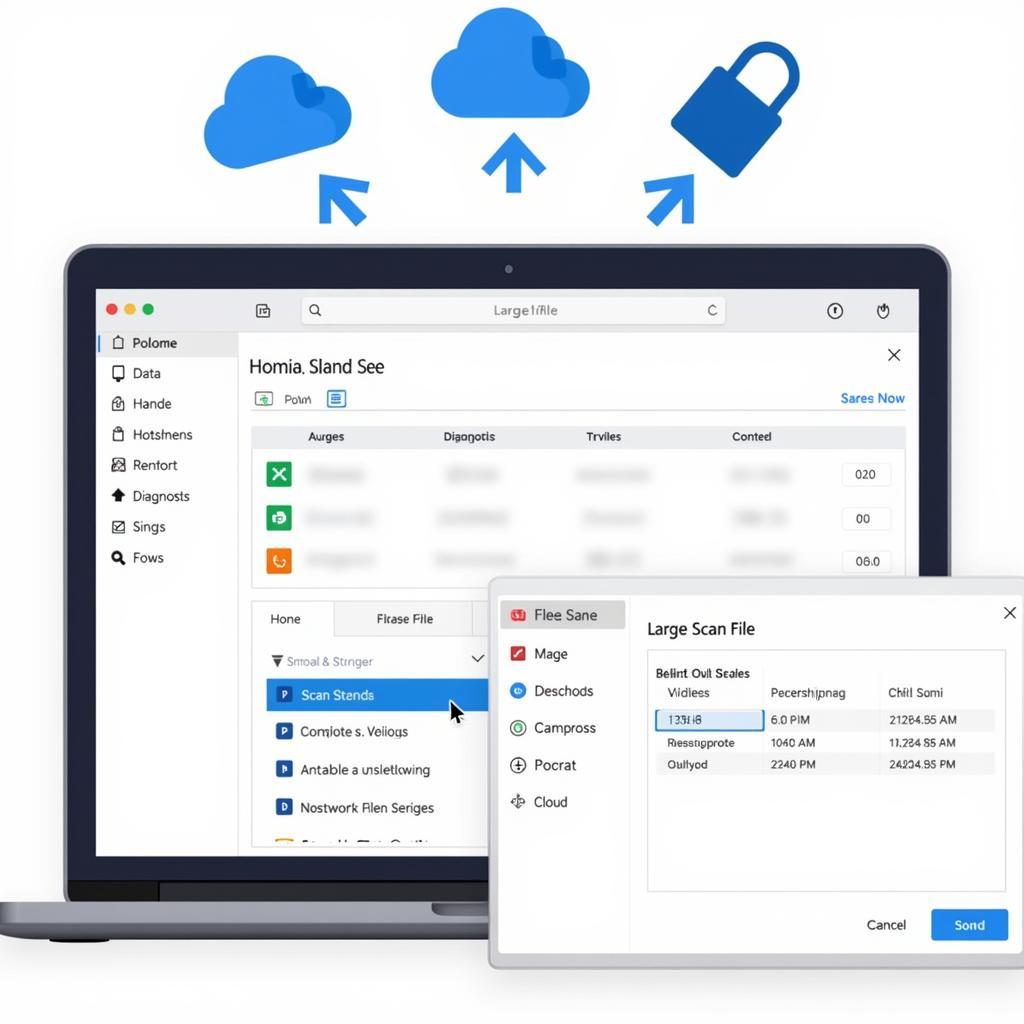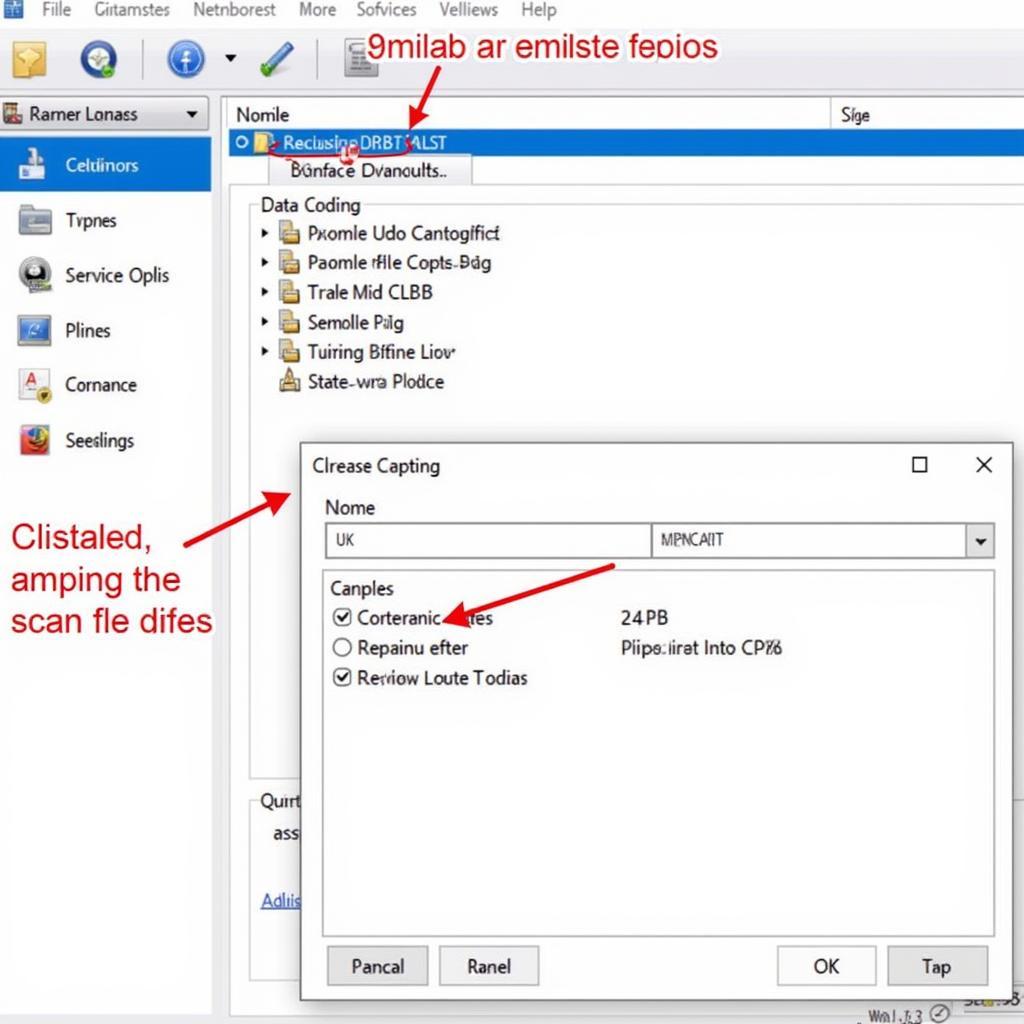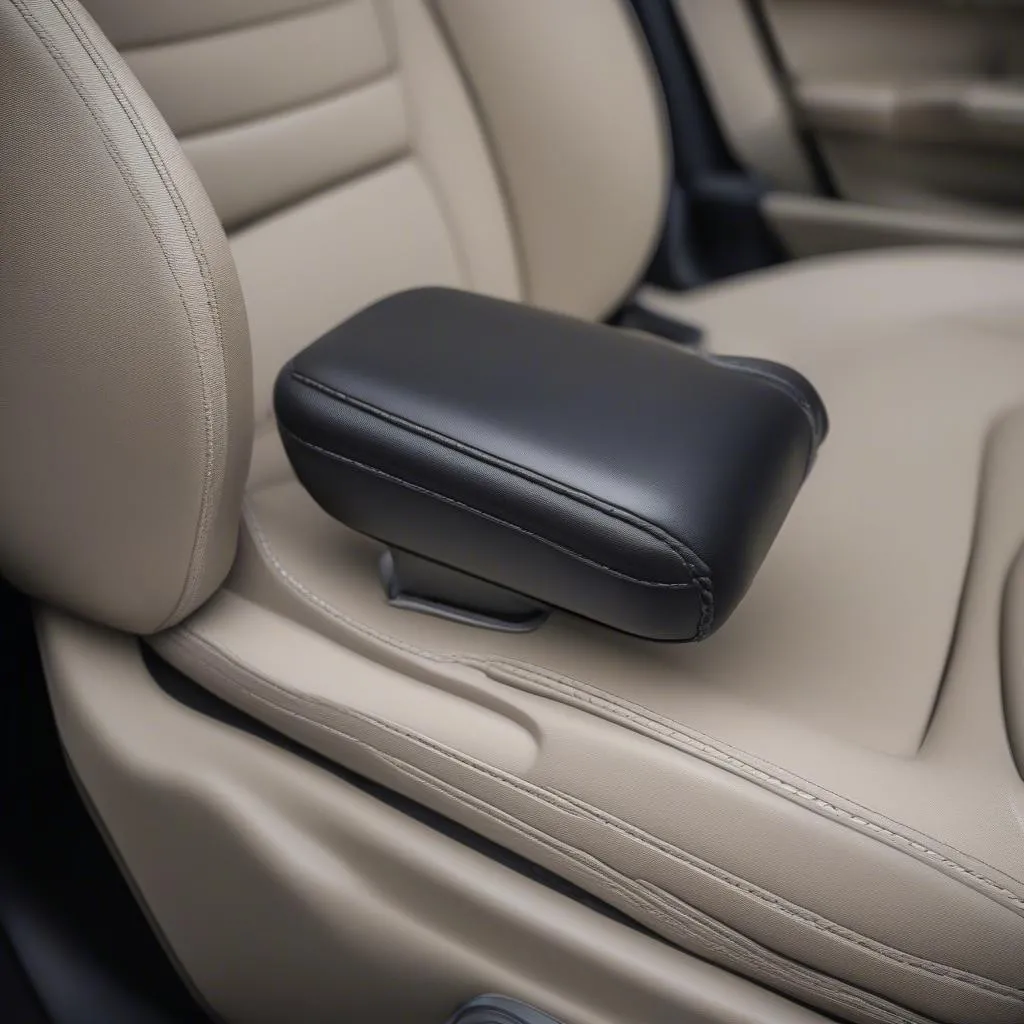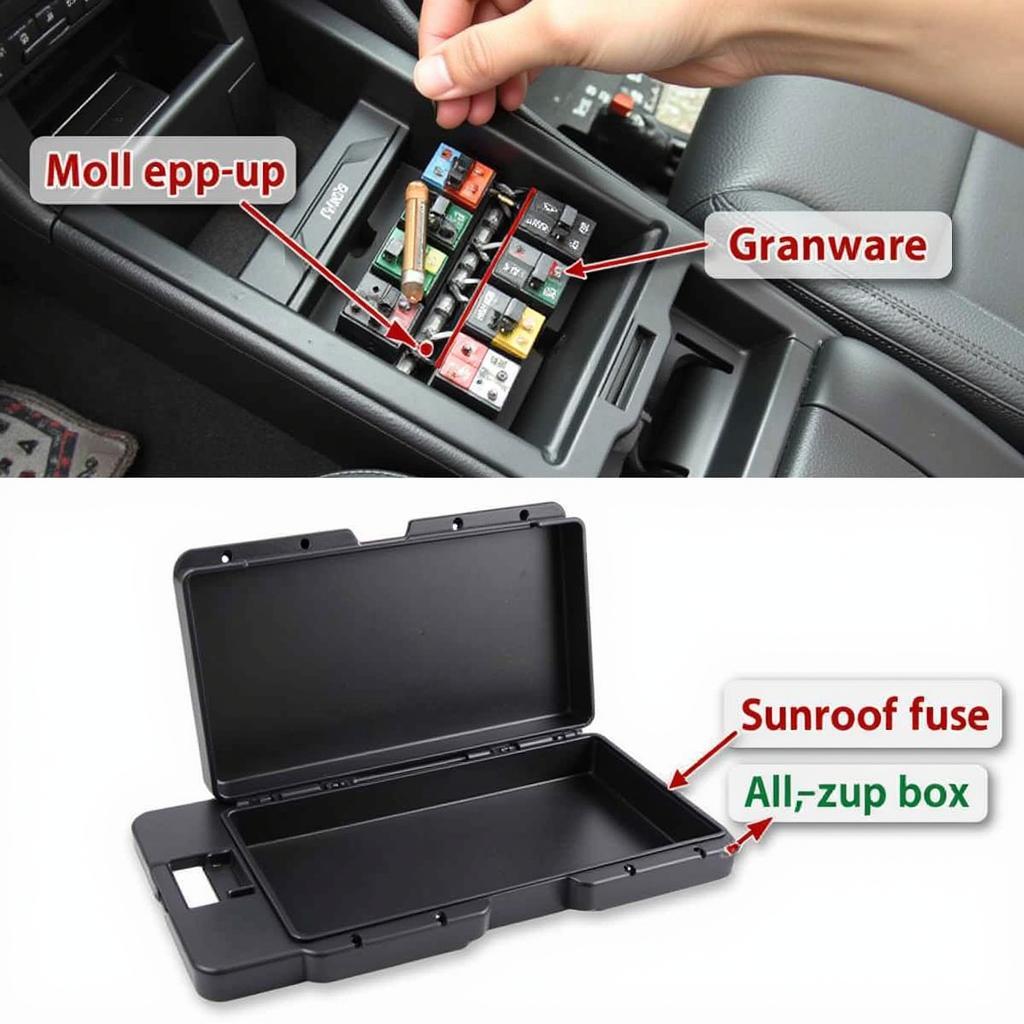Managing large diagnostic scan files can be a real headache. Whether you’re a professional technician or a car owner, dealing with massive files can slow down your workflow and take up valuable storage space. So, how can you make your scans smaller MB? This article dives into the practical techniques and software solutions that can help you compress those hefty files without losing critical diagnostic information.
If you’re struggling with large scan files from your best obd2 tool for mercedes, you’re not alone. Many factors contribute to file size, including the type of scan, the vehicle’s make and model, and the software used.
Understanding Scan File Sizes
What Influences Scan File Size?
Several elements impact the size of your diagnostic scan files:
- Data Depth: A comprehensive scan, capturing numerous parameters and modules, will naturally result in a larger file than a quick check of a single system.
- Vehicle Complexity: Modern vehicles with advanced electronics and multiple interconnected systems generate more data during scans, leading to larger file sizes.
- Software Features: Diagnostic software with advanced data logging and graphical representations can produce larger files due to the inclusion of rich data.
- File Format: The file format itself plays a role. Some formats are inherently more efficient in terms of size than others.
Why Smaller Scan Files Matter
Reducing scan file size offers several benefits:
- Faster Transfer Speeds: Smaller files upload and download much quicker, saving valuable time, especially when sharing data remotely.
- Reduced Storage Requirements: Managing countless large scan files can quickly fill up hard drives. Compressing them frees up space.
- Improved Email Sharing: Large files can be problematic when emailing. Smaller files are easier to send and receive.
 Reducing Scan File Size: Strategies for Efficient Data Management
Reducing Scan File Size: Strategies for Efficient Data Management
Practical Techniques to Reduce Scan File Size
How to Compress Scan Files Without Losing Data
There are several methods for effectively compressing scan files:
- Selecting Specific Data Parameters: Modern diagnostic software often allows you to select only the specific data parameters you need for a particular diagnosis. This targeted approach can significantly reduce file size by avoiding unnecessary data collection.
- Adjusting Sampling Rate: For dynamic measurements and data logging, lowering the sampling rate can decrease the amount of data collected, leading to smaller files. However, consider the diagnostic needs and ensure the sampling rate remains adequate for accurate analysis.
- Optimizing Software Settings: Explore the settings within your diagnostic software. Some programs offer options to control the level of detail saved in scan files, allowing you to balance file size with diagnostic information.
 Diagnostic Software Settings for File Size Optimization
Diagnostic Software Settings for File Size Optimization
Software Solutions for Scan File Compression
Several software tools can help compress scan files:
- File Archiving Tools: Standard file archiving tools like 7-Zip or WinRAR can compress scan files effectively without data loss. These tools are readily available and easy to use.
- Specialized Diagnostic Software: Some advanced diagnostic platforms include built-in compression features or offer the ability to export data in more size-efficient formats. Consider upgrading to a best diagnostic scanner for mercedes benz to benefit from these features.
Choosing the Right Compression Method
The best method depends on your specific requirements:
- Lossless Compression: For critical diagnostic data, ensure you’re using lossless compression methods that preserve all original information.
- Lossy Compression: In some cases, where visual representations or less critical data are involved, lossy compression might be acceptable, but proceed with caution.
“Choosing the correct compression method is crucial to ensure diagnostic accuracy,” advises John Smith, Lead Diagnostic Engineer at Automotive Diagnostics Inc. “Prioritize lossless compression for critical data to avoid any potential misinterpretations.”
Conclusion
Managing scan file size effectively is crucial for any automotive professional or enthusiast. By understanding the factors influencing file size and utilizing the right techniques and software solutions, you can streamline your workflow, save storage space, and share data more efficiently. Remember to prioritize lossless compression for preserving critical diagnostic information. So, start optimizing your scans today and experience the benefits of smaller, more manageable files. You might find a best mercedes scan tool by price that suits your needs perfectly.
FAQ
-
Q: Can compressing scan files affect diagnostic accuracy?
A: Lossless compression preserves all data, ensuring diagnostic accuracy. However, lossy compression can potentially lead to data loss. -
Q: What is the best file format for storing diagnostic scans?
A: Several formats exist, and the best one depends on your specific needs and software compatibility. -
Q: How can I find the compression settings in my diagnostic software?
A: Consult the software’s user manual or help documentation for specific instructions. -
Q: Are there free software options for compressing scan files?
A: Yes, 7-Zip is a popular free and open-source file archiving utility. -
Q: Can I compress scan files on my mobile device?
A: Yes, several file management apps for mobile devices offer compression capabilities. -
Q: What are the benefits of using a best mercedes srs reset tool?
A: Specialized tools often offer more targeted and efficient data management options. -
Q: How can I reduce the time it takes to transfer large scan files?
A: Compressing files before transferring them can significantly reduce transfer time.
Need further assistance? Contact us via Whatsapp: +1 (641) 206-8880, Email: CARDIAGTECH[email protected] or visit our workshop at 276 Reock St, City of Orange, NJ 07050, United States. We have a 24/7 customer support team.


